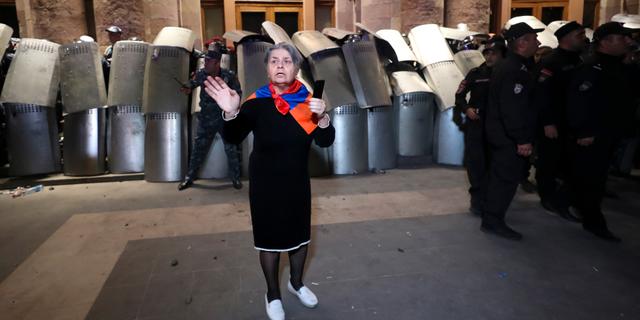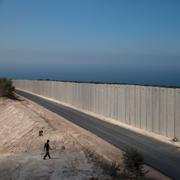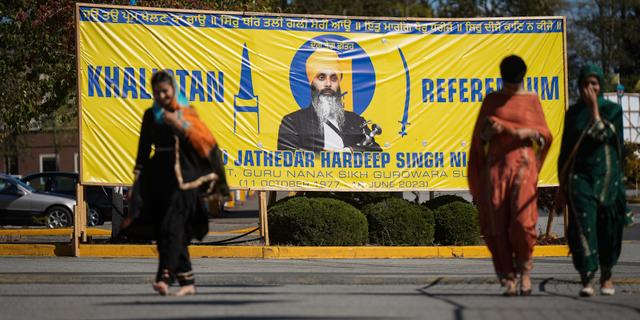Hardeep Singh Nijjar on a placard. DARRYL DYCK / AP
The Canada-India relationship
The "Five Eyes" network gathered evidence against India
The intelligence that Canadian Prime Minister Justin Trudeau relied on when he accused India of being behind the assassination of Sikh leader Hardeep Singh Nijjar had been gathered by the "Five Eyes" network. This is what the US ambassador to Canada, David Cohen, told Canadian CTV.
He says that "it was joint intelligence [...] that led to Canada being able to make the statements that the Prime Minister made".
Canada has announced that it does not intend to make public the evidence it has for its accusations, but believes that the investigative work must be allowed to take its course.
"Five Eyes" consists of the United States, Great Britain, Canada, Australia and New Zealand.

A woman wearing a scarf with Armenian colors in front of police in Armenia's capital, Yerevan. Vahram Baghdasaryan / AP
The conflict in Nagorno-Karabakh
Armenians surrender weapons - end of conflict in sight
Armenian soldiers in Nagorno-Karabakh have surrendered their weapons after the Azerbaijani military's lightning offensive in recent days, reports AFP. The parties are in further negotiations on Saturday.
If the ceasefire holds, an end to the conflict between Armenia and Azerbaijan could be in sight, according to the news agency.
On Friday, Russia announced that Armenian soldiers had begun handing over their weapons. The process is expected to last all weekend, and will be overseen by what are described as Russian peacekeeping forces.
Azerbaijanis and Armenians have been in conflict over Nagorno-Karabakh for over a hundred years.

The border between Israel and Lebanon. Sebastian Scheiner / AP
The Israel-Lebanon conflict
Military tensions between Israel and Lebanon
Lebanon's army has fired tear gas at Israeli forces in response to Israel firing smoke bombs at an area in southern Lebanon.
According to the Jerusalem Post, Israel's action was a response to a tractor crossing the border from Lebanon.
According to the Lebanese army, it was a bulldozer that would destroy an earthen embankment north of the so-called demarcation line.
"The Lebanese patrol responded to the attack by firing tear gas bombs [...] forcing them to retreat into occupied Palestinian territory," the Lebanese army said in a statement.
The UN peacekeeping force in the area, UNIFIL, announces that it is trying to reduce tensions and ensure that the parties avoid any misunderstandings.

Archive image. Alexander Polegenko / Ap
The Russian Invasion|The Battles
Russian military ships.
"Attacks against the navy hit Russian morale hard"
The information that the US will send the ATACMS weapon system to Ukraine is positive news for Kyiv, writes Mark Stone in an analysis for Sky News. The system has several advantages over the Storm Shadow cruise robot, which Ukraine already has access to. ATACMS robots, for example, can be fired from the ground and are not weather dependent in the same way as the Storm Shadow, which can only be launched from aircraft.
But there are moments of concern, writes Stone:
"[...] the lingering concern about how Russia would respond to increasingly sophisticated Western weapons on the battlefield, especially if the weapons were capable of striking Russia".
Tom Sharpe writes in an analysis in The Telegraph about Ukraine's success in Sevastopol. In two days, they have carried out two attacks against the Russian navy in the city, which is said to cause "gigantic" effects on the morale of the Russian navy.
Sharpe writes that the Marines are not known for having particularly high morale even in "the best of times":
"It's hard to imagine that it could get so much worse now."

Inga kommentarer:
Skicka en kommentar